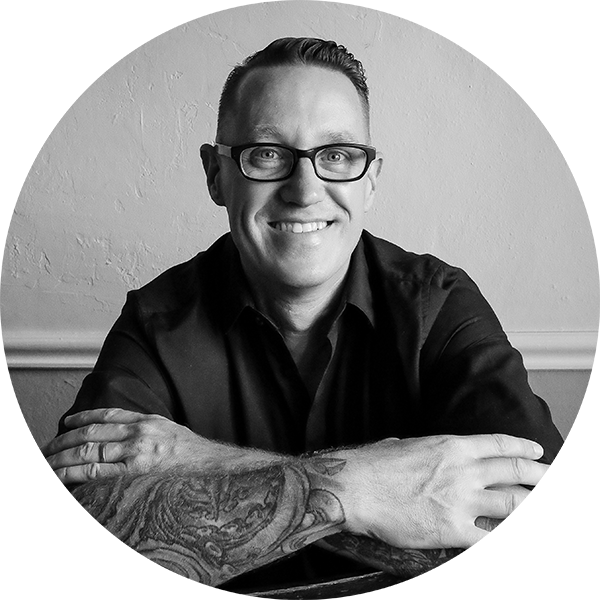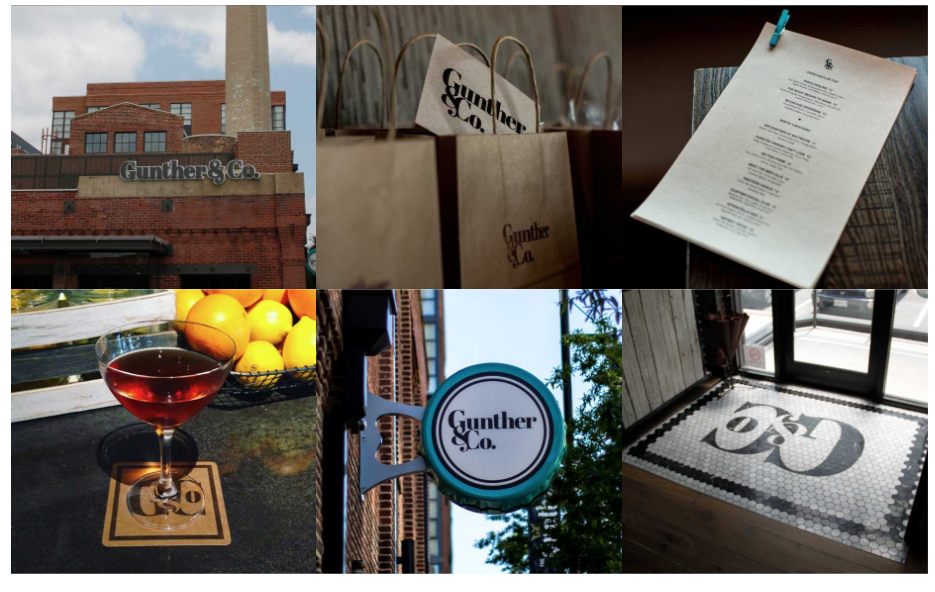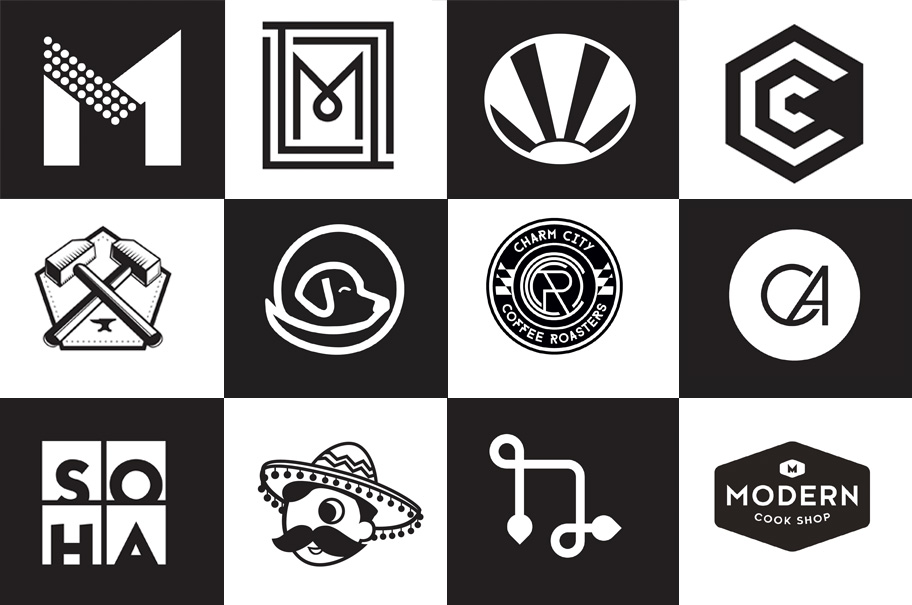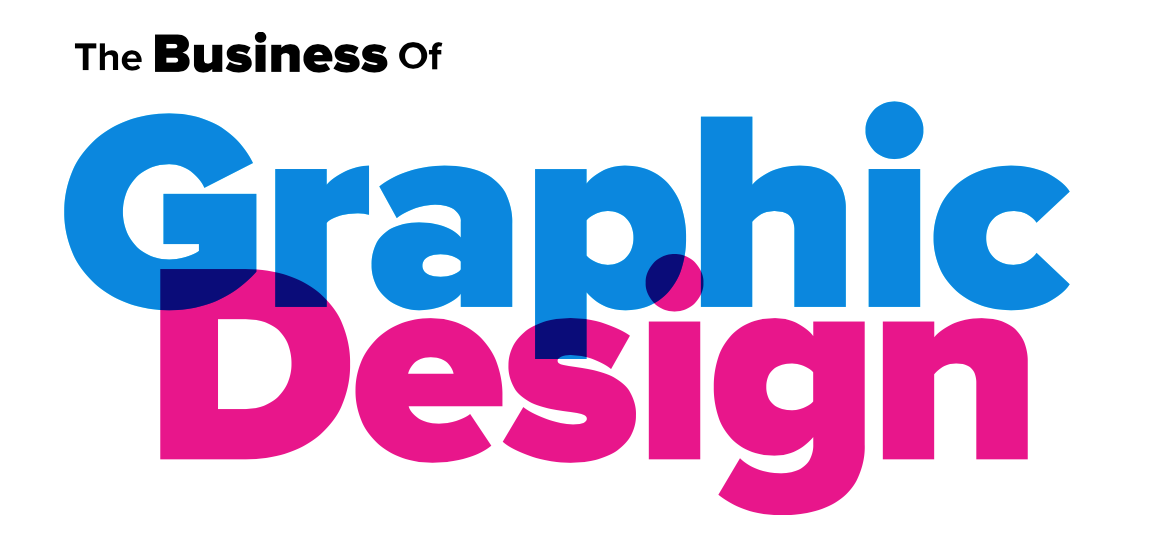
Interview With
Bob Gillespie is founder and owner of Propr Design. His clients include SC&H Group, Wyndridge Farm Brewing, Webb Mason Analytics, Gunther & Co., and many more in and around the Baltimore area.

I had been working for a large agency that did good work, but I began to feel that I had reached a point in my career where I just wasn’t getting enough opportunities to do my best work for clients. It became apparent the agency was getting in the way of me reaching my full potential.
For me it has always been about building a partnership with a client that results in delivering the best possible work within the scope of the job and their budget. But sometimes doing that in the confines of a large agency can be challenging, and I began to feel that it was time for me to move on and start something a little smaller that would still deliver excellent work without the red tape and politics.
Well into my third year with the agency my tenure was over and I took a month off to regain my sanity. During my time off I was contacted by a ton of recruiters who heard that I was out there, which was nice. But for some time I had been juggling the thought of whether to go back and do it again with somebody else, or find a small shop and help build them up, or go out on my own and bust my ass for myself.
I decided it was time to make my own dreams come true and open my own shop. I didn’t have much saved, so what I did was actually pretty risky and slightly terrifying, but it was really exciting. I knew that I would be taking on some added expenses, but my family was very supportive of my decision and I never felt that I was doing the wrong thing.
When I started, I was looking for a place to work away from home, so I rented a desk at a small studio down by the harbor. All I needed was my laptop, a Mac Book Pro, and a subscription to Adobe Creative Cloud.

Some of the recruiters I had connected with helped me meet a few people at other agencies. Those connections quickly turned into projects. One of them, an up and coming agency in town, quickly threw a few long-term projects at me that allowed me to get my feet wet while building the foundation of the new business.
I’m a huge believer in the power of networking, so I reached out to a lot of small shops and freelancers, just to get as much information as I could about a new operation. I already knew a lot about account management and project management. What I didn’t know I was able to find out from friends who did that for a living, which allowed me to expertly fill in any gaps. Getting the business started, setting up an LLC, is something I’ve done before. So, really, the tax side of things was where I really knew nothing and decided I’d call on an expert if I needed to.
So far it has been a great situation. I manage my projects, clients, and time. I like that my business’ success is mostly all in my own hands. It has not been easy, but the challenge is a big part of the draw for me. I don’t want an easy life. I want challenges, successes, and failures that I can learn and grow from. I bore easy, so the challenges of running my own business keep me from getting stale and bored. Life is too short to waste it sitting around in an office waiting for someone to give you something to do. I don’t think my quality of life has ever been better. I see my family as much as I want. If I want to take a short day, or time off to go hiking, hang with my children, or go have a few pints at the bar, I can do that without any BS from coworkers or a boss. I get to focus on the work I like, while helping clients grow their businesses. There is great reward in helping a client succeed while not burning myself out or dealing with agency nonsense.
“I’m a huge believer in the power of networking, so I reached out to a lot of small shops and freelancers, just to get as much information as I could about a new operation.”
My business plan has several layers to it.
Long term, I would like to see the business grow to contain three creative partners. But creativity, to me, is actually not a just relegated to designers, photographers, or writers. Those people are certainly involved in building things, designing things, writing things. But, to me, creativity is mostly problem thinking and solving. If someone’s primary job is going to be just sales and account manager, I still want her to have a creative mind and to do creative things with that mind.
In terms of revenue streams, currently I have two primary focuses. The first are long-term projects. These can be a retainer or not, but the projects and work must last for an extended length of time; usually 6 months or more. These engagements allow me to relax and focus on the work, not the next thing. And they bring stability and predictability to the business. The type of work I provide in these cases consists of modernizing a business’ brand and digital presence. Often time a business has a website and a brand, but it isn’t working for them, it just exists. I help them turn a weakness into a strength and modernize their whole brand, from website to marketing materials and corporate collateral, for the digital world. The value my work offers comes from the measurable impact from generating leads, higher conversations, greater brand awareness, and positive customer and recruiting results. My clients instantly compete better and I free up their leadership to grow the business and achieve their brand aspirations.
The second revenue stream is what I’ve named my 7-11 clients. These are smaller projects centered around but not limited to a website. I call them 7-11 projects because they come in around $7-11k (or $20-25k, but that doesn’t sound as cool), and they are “in and out,” not a long-term client. My work still offers a measurable impact. Often these clients see a full return on their investment in as little as 6 months, but there is little need or budget for ongoing work.
I’ve always been successful at building relationships where clients trust me, which they need to do. We need to have common goals where we’re working towards these goals together. But the difference is, as a freelancer, I’m not sitting in their offices. I am free to sit in my office. I don’t have to check in at the end of the day. I don’t have to send an email every evening to tell them what I’ve been working on. I can work on it until 8 o’clock at night on a Saturday. It doesn’t matter. All that ass-in-a-seat nonsense is tossed away because they trust me and they know I’m going to do a good job, and I’m going to work with them.
Client relationships must be trusting, where you listen and not just tell them how it is. The people I’m working with have their own perspective and their own opinions, which are crucial to the success of the projects, and I should take them all into consideration. I can’t just say “Do it my way because I know best.” That’s pretty short sighted.

I’m not very big on hierarchy. I’m big on autonomy, where everyone feels like they are part of the business and have a sense of ownership. I need the people I work with to care as much about the work as I do.
Long before I had the opportunity to become a creative director, before I had the opportunity to become a senior leader, I already had ideas on how I would handle my people. How I would motivate them. How I would listen to them, and how I would get them to grow. Not based on what I’ve done, because I never did it, but based on what I’ve read and seen other people do, or not do, or do wrong. I formed strong opinions about giving autonomy instead of direction. By empowering people and making them figure things out themselves, only bringing me in when they need me, not bringing me in just to hold their hand, helps me get the most from them in both passion and product.
I always told my designers that, to be successful, you have to be the most prepared person in the room. To talk about your work at such a level that there is nothing that they can ask you that would put you off or catch you off guard. That requires hard work and preparation.
Being well read is crucial for a designer. To go to lunch with clients you’ve never met before and try to get them to hire you to do some work for them, you must be interesting. You should be able to talk about things, and those are things learned, not only by making mistakes, but also just by observation, reading, research, and exploring the world and the world-wide web. Those are the things that are all out there just to be absorbed. You must pay attention to them, that’s what can really make the difference.
“To be successful, you have to be the most prepared person in the room. To talk about your work at such a level that there is nothing that they can ask you that would put you off or catch you off guard. That requires hard work and preparation.”
When I started Propr I tried very hard to be both confident and humble at the same time. I certainly want to be a great designer, but I don’t have to be one. I just do good work and bring value to my clients. I don’t have to be special or on the cover of magazines. If I got that opportunity I’d eat it up, of course, but I don’t have to do that. One doesn’t have to be famous to be good.
Over the years I’ve figured out that learning new things all the time is the secret to life. It’s the secret to happiness. The people who are constantly learning and trying new things are the ones others flock to, simply because they’re more interesting and curious.
Like Socrates, I ask a lot of questions. I realize that I’ll never know as much about a client’s business as they do and I’ll never know as much about their customers as they know, which is why I’ll rely on them to help and guide me during my process to deliver purposeful and appropriate work.
If there’s one thing I learned the hard way, it is that you must be able to quantify everything. If, at the beginning, you don’t have a strong foundation, eventually there is going to be a point of failure, and it could be catastrophic. The simple fact is the more you know, the better you are at making important decisions.



